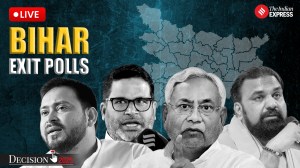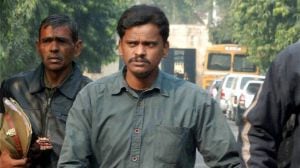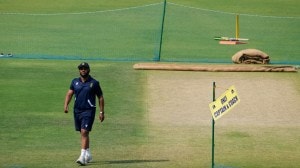Sikkim provides silver lining to a lacklustre KFF
Two screenings of Satyajit Rays controversial documentary Sikkim were the only silver linings in this years dismal Kolkata Film Festival.
Two screenings of Satyajit Rays controversial documentary Sikkim were the only silver linings in this years dismal Kolkata Film Festival,which barely managed to pull crowds due to a reduction in budget and the number of films.
Organised by the West Bengal Film Centre under the aegis of the state government,the eight-day 16th KFF ended on November 17 with a second screening of Sikkim. A Gangtok court order had halted its further showing after the first on the second day over copyright issues.
Art & Culture Trust of Sikkim,an NGO working for the preservation of ethnic Sikkimese art and culture,who claimed to own the copyright of the film,withdrew their case and allowed the festival authorities to hold one more screening of the movie on November 17.
In the absence of big names and decreased audience interest,the second oldest international film festival of India also paid tributes to Gurudev Rabindranath Tagore on his 150th birth anniversary.
Four films Khokababur Pratyabartan,Charulata,Atithi and Streer Patra inspired by Tagores stories were screened.
To reflect the importance of literature in the world of cinema,five works of Nobel laureates in literature from across the world were featured in a special section. A total of 127 movies from 38 countries was presented this year,a sharp drop as against last years tally of 227.
But this ensured greater quality in the selection of films. Like all other years,the film festival is a success this time also as it managed to draw the interest of film lovers from the city, KFF director Nilanjan Chatterjee argued.
The festival budget,over one crore last year,was also trimmed this year to Rs 65 lakh as corporate sponsors showed little interest in Chief Minister Buddhadeb Bhattacharjees pet project.
As many as 25 foreign delegates were used to be invited in the film fest earlier,but this year their number was limited to only five.
More than half of the movies were shown in the DVD format due to high freight rates on the import of 35 mm reels. It is not possible to get film prints for all the shows,so we had to go for DVDs,which is easier and cheaper to procure, said a KFF official.
Film buffs complained of poor video quality after watching some screenings like that of Arghya,a 1961 film by Debaki Kumar Bose.
The quality was terrible,making it difficult for anyone to watch the film, said Debashis Bose,grandson of Debaki Kumar Bose. The twin screenings of Sikkim,however,remained the biggest attraction.
The 52-minute documentary,commissioned by the last Chogyal (king) of Sikkim,Palden Thondup Namgyal,had dogged controversy ever since it was made by the Oscar-winning director. The Chogyals first banned the film,made 39 years ago,after a few scenes went against their liking. When the Himalayan kingdom merged with India in 1975,the Indian government also banned it.



- 01
- 02
- 03
- 04
- 05




























